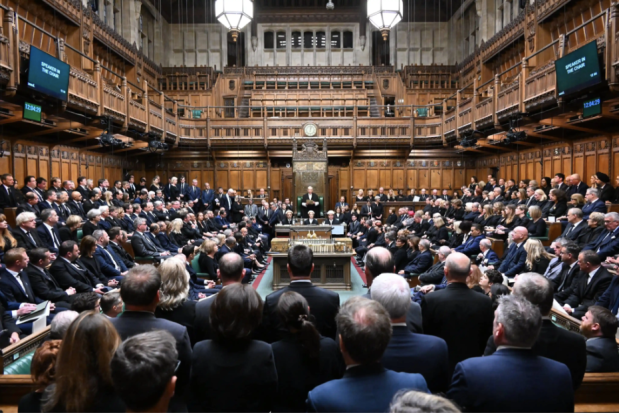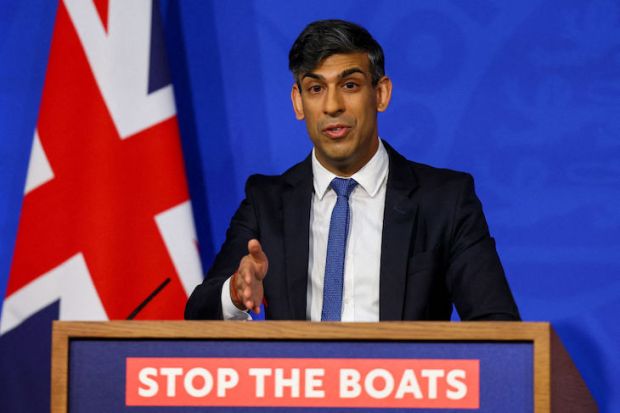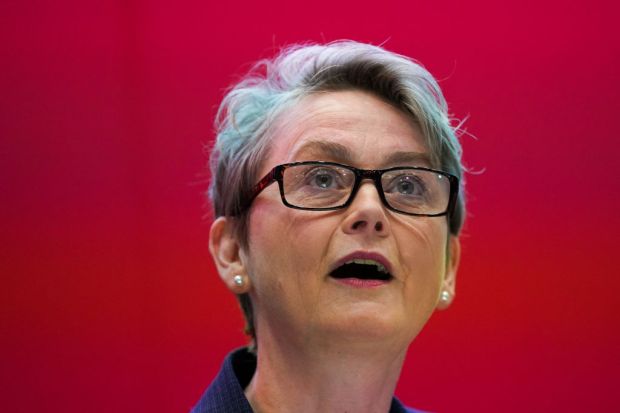There’s no point denying it, Labour is doing a bit better these days. Its poll rating is averaging a 39, which is back where it was this time last year after a long dip down into the low thirties that coincided with Boris Johnson’s ‘vaccine bounce’. These days it is the Tories languishing on an average score of 33 per cent.
Labour’s shadow cabinet looks more plausible as well. Rachel Reeves is a big step up from Anneliese Dodds as shadow chancellor and Yvette Cooper has been subbed in for the low wattage Nick Thomas-Symonds as shadow home secretary. Wes Streeting seems like a bit of a star in the making too in the health brief.
Suddenly that ‘has a good team of leaders’ question that pollsters think is a crucial test does not necessarily prompt snorts of derision when asked of voters about Her Majesty’s Opposition.
But what about the leader himself? Keir Starmer has certainly performed better in the Commons in his last few PMQs outings. His skewering of Boris Johnson over ‘partygate’ and reference to the image of the Queen sitting alone at the funeral of the Duke of Edinburgh hit home.
So is this it? Is this Starmer’s moment to take wing, nearly two years into a so-far underwhelming tenure as leader? Can he confound expectations and the forces of political gravity and turn a party with 199 MPs into one with 300+ at the next election?
Such advances are not intrinsically impossible, after all. As recently as 2010, David Cameron’s Tories took more than 90 seats off Labour in one go as they leapt from 210 seats to 307, becoming the biggest party in the Commons and the senior partners in a coalition government with the Lib Dems. Now that he is receiving — and taking note of — better advice (take a bow Lord Mandelson), could Starmer be capable of a similar feat?
That remains highly unlikely for a long list of reasons. First off, Starmer shows little sign of being able to win back the millions of red wall, generally pro-Brexit voters who abandoned Labour in 2019. That is no surprise given his record as Brexit-blocker in chief, in contravention of an earlier promise to respect the referendum.
And though he gives off a more patriotic and socially conservative aroma these days, Starmer thoroughly outed himself as a progressive leftist before placing himself in more expert spin-doctoring hands. He seemed to confirm his youthful anti-monarchist views by siding with those epic whingers Harry and Meghan against the Queen. He took a knee to the Cenotaph-daubers of BLM. He declared it ‘wrong’ to say that only a woman has a cervix.
He is still a leaden campaigner, compared not only to Boris Johnson but to several of Johnson’s potential Tory successors as well. His personal approval ratings remain massively negative. For example, his latest YouGov monthly tracker finding 51 per cent of voters think he is doing badly and only 28 per cent well. Among the Leave voters he needs to win back in Tory marginals, those scores are 64 per cent saying badly and 19 per cent saying well, by the way.
And the sheer challenge of trying to stitch together a coalition of support that is dominated by urban progressives — but that also encompasses older culturally conservative provincial voters — would be too much for far more gifted performers than Starmer in these ultra-polarised times.
A look at the YouGov issues tracker underlines the point. Remain voters list health, the environment, the economy and Brexit as their top four issues — all are at least 20 points above the others in their rankings. Yet for Leave voters, the biggest issue is immigration and asylum.
For all their fury at Boris Johnson for failing to get a grip on the English Channel crisis, what can Starmer credibly offer them from a putative Labour administration? Only an even softer touch and even higher immigration volumes dressed up in jargon about creating ‘safe routes’.
This chasm, based on a profound values divide, appears unbridgeable. It may explain why Labour keeps banging its head on a 40 per cent ceiling of support, no matter how badly the government keeps doing. If the Conservatives really do deliver radical action to stop the boats, especially action that the liberal left establishment finds outrageous, then the ensuing furore will surely reinvigorate their own winning coalition of traditional shire Tories and red wallers.
On the other dominant issue of the day, the battle against Covid, it is starting to look like Starmer may have called things wrong again by joining the clamour for greater lockdown measures. If in a month’s time Omicron has blown through without inundating hospitals — and that remains a big ‘if’ — then Johnson will regain some of his lost authority.
And though Ms Reeves is more plausible than her predecessor as shadow chancellor, Labour still has much more to do if it is to overcome its massive long-term reputational failures on economic management.
Finally, consider the reaction of English voters at the next election if it looks like we are heading for a Labour-SNP coalition or some other arrangement after polling day. The newly marginalised Ed Miliband might be worth consulting about that — it was what killed Labour and gave the Tories their majority in 2015.
To have much chance of turning Labour into the largest party in the next parliament, Starmer needs two things to happen that are outside his control. First, the Johnson administration will have to carry on performing very poorly and alienating its own supporters. Secondly, a challenger party on the right will have to gain serious and durable traction to syphon off Leave voters from the Tory column.
Without those two pieces of the jigsaw falling into place, Labour looks as though it is heading for another drubbing in 2024. Keir Starmer is unlikely to become prime minister.
Got something to add? Join the discussion and comment below.
Get 10 issues for just $10
Subscribe to The Spectator Australia today for the next 10 magazine issues, plus full online access, for just $10.




















Comments
Don't miss out
Join the conversation with other Spectator Australia readers. Subscribe to leave a comment.
SUBSCRIBEAlready a subscriber? Log in